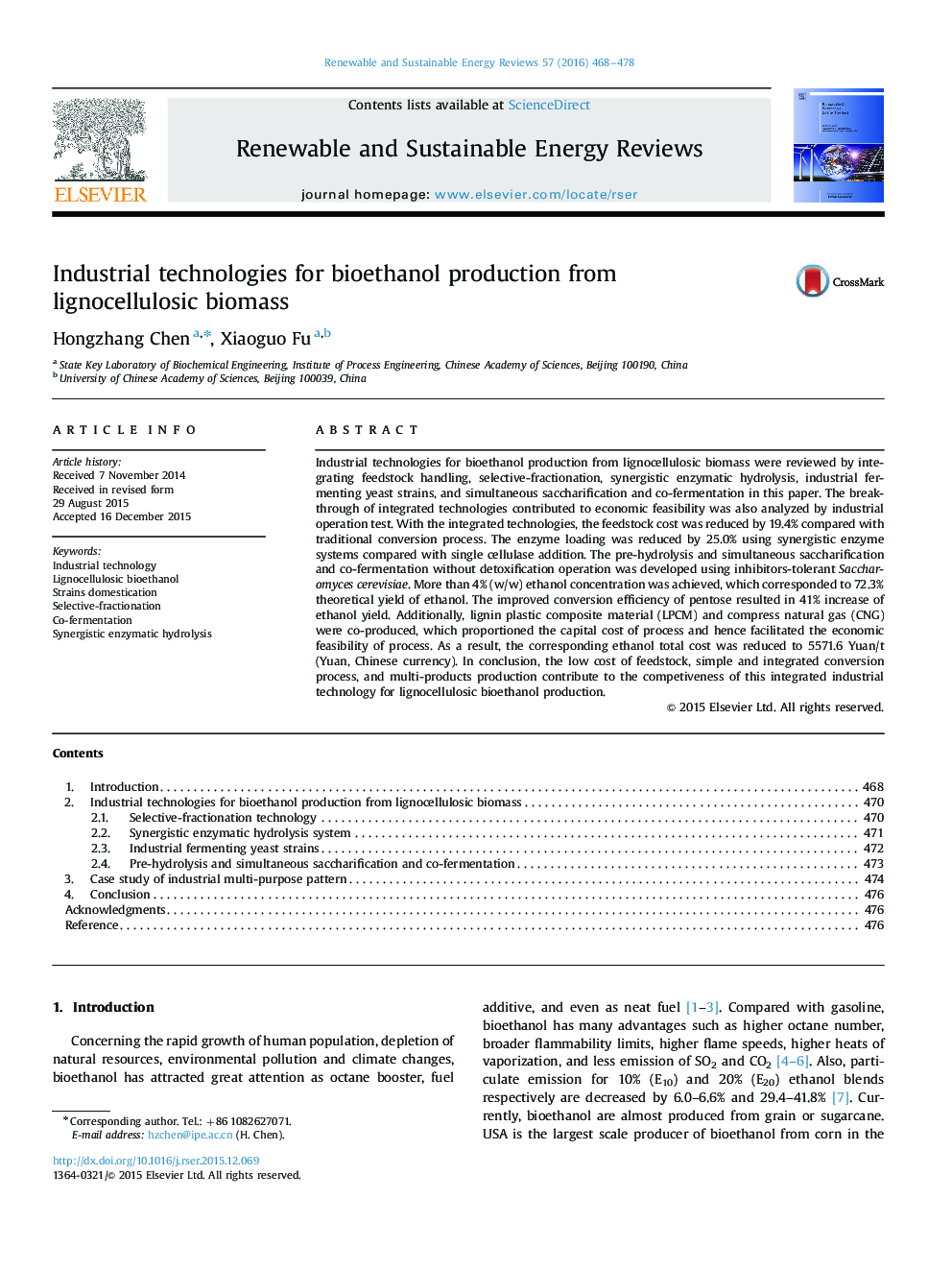| Article ID | Journal | Published Year | Pages | File Type |
|---|---|---|---|---|
| 8114558 | Renewable and Sustainable Energy Reviews | 2016 | 11 Pages |
Abstract
Industrial technologies for bioethanol production from lignocellulosic biomass were reviewed by integrating feedstock handling, selective-fractionation, synergistic enzymatic hydrolysis, industrial fermenting yeast strains, and simultaneous saccharification and co-fermentation in this paper. The breakthrough of integrated technologies contributed to economic feasibility was also analyzed by industrial operation test. With the integrated technologies, the feedstock cost was reduced by 19.4% compared with traditional conversion process. The enzyme loading was reduced by 25.0% using synergistic enzyme systems compared with single cellulase addition. The pre-hydrolysis and simultaneous saccharification and co-fermentation without detoxification operation was developed using inhibitors-tolerant Saccharomyces cerevisiae. More than 4% (w/w) ethanol concentration was achieved, which corresponded to 72.3% theoretical yield of ethanol. The improved conversion efficiency of pentose resulted in 41% increase of ethanol yield. Additionally, lignin plastic composite material (LPCM) and compress natural gas (CNG) were co-produced, which proportioned the capital cost of process and hence facilitated the economic feasibility of process. As a result, the corresponding ethanol total cost was reduced to 5571.6 Yuan/t (Yuan, Chinese currency). In conclusion, the low cost of feedstock, simple and integrated conversion process, and multi-products production contribute to the competiveness of this integrated industrial technology for lignocellulosic bioethanol production.
Related Topics
Physical Sciences and Engineering
Energy
Renewable Energy, Sustainability and the Environment
Authors
Hongzhang Chen, Xiaoguo Fu,
